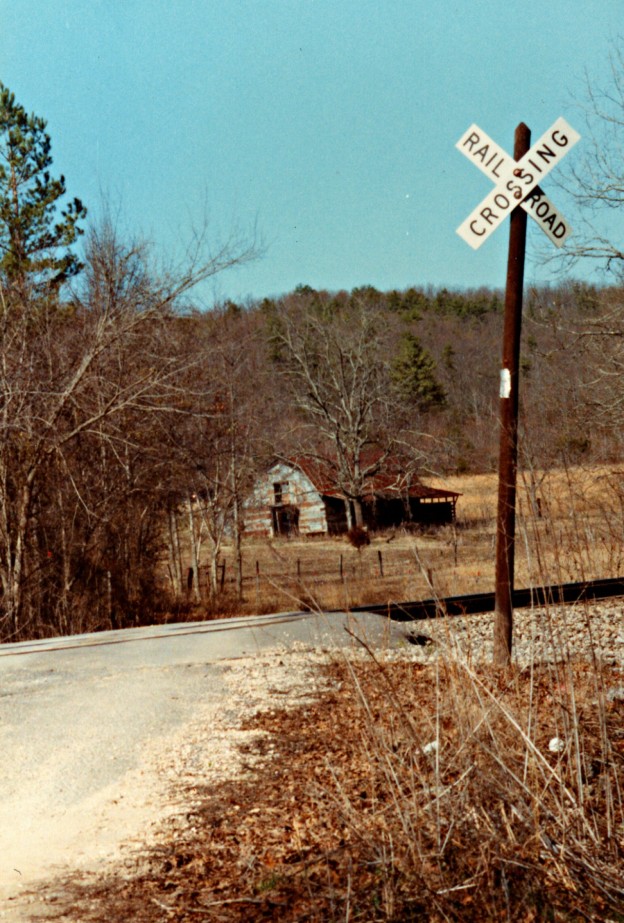This is a review of one of my favorite bands as a young man: Ministry. Though I have not kept up with them in the past couple of years, they were a big influence on the bands I played with in my 20’s. This new release reveals their new wave synth-pop roots in all their glory. Published originally on The Record Stache

Death and Taxes
They say the only two things you can count on are death and taxes. Well, that is a bit unfair to Death. Death is the only thing you can count on. I know a lot of people who don’t pay taxes. I don’t know anyone who will be alive in 100 years. That seems a bit strange when you really examine it: One century. One hundred years. Plenty of my relatives made it to 90. Some even made it a bit farther. But nobody cheats Death. Even if you pass the One Hundred Year mark, you can bet Death has your name towards the top of His list. And that is just it: none of us really knows when He will appear in our lives…either to claim us, or to claim family or friends.
One of my high school friends never made it out of his 20’s. He was the epitome of James Dean’s desire to live fast, die young, and leave a good looking corpse. My uncle on the other hand came close to making it to 100…and retained the energy and mental awareness of a much younger man. I’m 46, and he had more energy than me.
As Americans we treat death as some sort of pariah. Something we aren’t supposed to speak about. We refer to family members that have died as having “passed on” or “passed away”, as if they have taken a trip and will be back sometime soon. But that just isn’t truth. My father did not “pass away” at 70, in April 2012. He DIED. Death came to him in the night, and he was dead in the morning when my mother went to see why he had not gotten up. I blamed a lot of people when that happened. I blamed them for not forcing my father to go to the hospital the night before he died. I blamed my mother, blamed my son, blamed myself for not being there, for not knowing. But the hard truth is, Death comes, He comes for us all, and you are not going to be the “one” who he forgets, the one he leaves off his list, the one who has something so very important to do and therefore you get to pass Go, collect your $200, and keep playing the great monopoly of life.
I wish I knew what lay behind the curtain that separates life and death. Doctors wish they knew. I worked for a company is my 20’s that sold supplies to cardiologists and hospitals. Many people pass from this realm to the next after their heart stops. My father was one of these people. Some of these people are brought back with drugs or stimulation to the heart (usually by electricity). Sometimes these people speak of floating above their body and watching the doctors working to bring them back from death. Some of these people say they pass through a tunnel where they are greeted by long dead family members. Of course, there are those who say this is just a hallucination caused by the release of opiate-like chemicals into the brain to help the body deal with death. These people are people I like to call “assholes”. They just have to find some way to spoil the belief in an afterlife many of us hold as sacred. What they are really saying is “there is no God”. I have many friends who are agnostics. I have some friends who are atheists. and a few pagans. Sometimes it is hard being friends with someone who finds it so difficult to believe an intelligent being created the universe and everything in it. Sometimes it is hard for me to believe this. But I cannot believe that Death claims us and we simply cease to be. I cannot believe there is nothing waiting on us. I can’t believe that the only sure things are death and taxes.
Our new Constitution is now established, and has an appearance that promises permanency; but in this world nothing can be said to be certain, except death and taxes. -Benjamin Franklin

Dirty Little Secret 657
If anyone has noticed, I haven’t been writing much. At all. Some of this I blame on family drama and my health. I can’t force myself to write through some problems, no matter how hard I try. But it is how I chose to hide this fact that I am really ashamed of. According to my notes, this is Dirty Little Secret 657.
As my friends know, I am a big William Gibson fan…mostly because Gibson was the first writer to make me taste, feel, smell and hear language. Though many people consider Gibson a science fiction writer (and he was an integral part of The Movement a.k.a. Cyberpunk, a subgenre that combined the dystopian undercarriage of 80’s Reaganomics, the violence and apathy of punk rock, and an unholy marriage of technofetishism and fear of technology) he has mutated into a novelist with a command of language approaching (maybe exceeding) literary giants like J.G. Ballard and Cormac McCarthy, with the ability to describe in microscopic technicolor detail the society we are living in as opposed to a dark tomorrow that might be avoided. Genre writer or Great American Novelist, Neuromancer was the first novel I absorbed more as poetry than prose.
And it changed the way I wrote. Before Gibson, my writing idols were the aforementioned Ballard (High-Rise, Crash and Empire of the Sun) and Bret Easton Ellis (Less Than Zero and American Psycho), both of whom are masters of description and density of setting and themes. When introduced to Gibson, it was like staring too long into the sun: it burned into my retina, these things he described:
“The sky above the port was the color of television, tuned to a dead channel.”
That one sentence has haunted me since 1990, like a ghost of some future Christmas where the presents were words for me to admire before unwrapping their meaning. It wasn’t like the other writers I loved did not have a certain poetry to their choices of verbs and nouns. But at his calmest, Gibson was like reading a poem in a wind tunnel. What came out the other end was streamlined, efficient (sometimes sparse), but colored with the range of human sensory perception. It is fitting that one of the most startling fictional technical achievements in the bleak future of “The Sprawl Trilogy” novels was “simstim”, a kind of full-sensory virtual reality that had replaced movies and video games as the opiate of the masses. When I read Ballard, I get the same depth of the human soul and descriptive power…but Gibson managed to translate his descriptions into the full force and range of sensation. Thus it was more poetry than prose, at least to my punk rock ears. I wanted some of Gibson’s magic, and I read all of my Ace paperbacks of his first three books to tatters. Of course, back then he was a “science fiction writer” which is to the critic as “nothing special”.
When I went back to school, my first papers for Art Appreciation, Women’s Studies, and even Intro Philosophy were all more stories than true critical essays. But something clicked, because strangely the lowest grade I got was an A-. Maybe the teachers thought I had ADHD and felt sorry for me. Maybe they thought I was trying to impress them and felt sorry for me. Please let it be the former. …But it was probably the latter. Because I most likely was trying to impress them. Either way, in all honesty those assignments were horrible. I used every bit of poetry I could muster to answer rather straightforward questions concerning the subject matter. Bad poetry. I tried, in other words, to use big free-form sentences and descriptions like “the darkness of a dungeon and life becoming light helps Plato hone an almost religious need to examine the world and the nature of reality, turning the allegory of “The Cave” into an eldritch examination of education, and its lack, on our most base lower natures.” Maybe that means something, but I can’t really divide it from the bullshit it is encased in. I had not learned to properly apply description in a Gibsonian model. Perhaps I never will, but so great was his influence…well, I have to keep trying.
Unfortunately, when I began to run out of stories to post on this blog I dug into the pile of crap I had written for school, erased the date (or changed it) and uploaded it. Always read your own stuff twice before you let anyone but your dog hear or see it. Reading it out loud to your dog might even be a good idea. Backspacing over the class and teacher’s name and sticking a bad collection of sentences on your blog to hide the fact that you aren’t writing is NOT a good idea. I humbly ask for your forgiveness.
To make up for it, I promise to apply ever more flowery language and description in the future. And then burn it, scrape it across the page, and scrawl “The sky over the port was the color of television tuned to a dead channel” instead. Or something.
(the dog told me it was a bad idea)
STRIPMINE the eBook
If any of the three people (and bless you for sharing your time with me!) who read my blog also read any of the other blogs I write for (or Facebook, of course), you might get the impression that I don’t really like electronic publishing much. You would be correct. But rather than tell you why (and make myself more of a hypocrite) let me just say this: I’m not selling out, I’m buying in. (That’s a line from SLC Punk!).
I’ve decided that there just isn’t a way to get my stuff out there in the time that I want to put it out. If I waited on the perfect, dedicated and involved agent, editor, or manager…well, the only thing I’m going to do is slow my whole process down considerably. So after months of deliberation and thought, false announcements and retractions, I have decided to shake hands with the Beast and hope he doesn’t bite. I’m publishing electronically, baby.
Now, though I have technically three eBook projects in the works I’ve decided to try it out with publishing for Kindle/Amazon through Raised By Bats Press my first two books of poetry. Before you roll your eyes too far, I don’t call the stuff I write poetry…even if it rhymes. A lot of this stuff falls under the “Words” category. That way if the Masters of Poetry do not deem me worthy at least I have not lied: they ARE words. Some of them go back to the late 1980’s, so this is quite a collection. It will probably be the only one of its kind, as after publishing it I intend to jump right into fiction again and finish the first novel already! To spice things up again, I may include a few stories and essays. And I may include art and photography by other artists I respect. If it is possible, I may include some music by a former recording partner of mine. I haven’t asked him yet, but I just think it would be cool to have “reading music” especially for the “poetry” (words).
It will be called “Stripmine” because that is the name I gave it. I don’t have the time to explain what a strip mine is but it doesn’t involve strippers. I will go into the name in mind-numbing detail in the “Notes” section. I have published pieces of the first book before, in blogs. Most of this material has been re-edited or rewritten.
I will tell you when it is uploaded to Kindle/Amazon. I hope you get a copy (it will be priced inexpensively) and I hope you enjoy it enough to recommend it to ONE other person at least. Look, writing isn’t difficult for me, I will admit it. But trying to develop an audience and do all the social media stuff is excruciating. If anyone would like the job as my agent, I am currently accepting resumes. An email saying I WILL DO IT! would probably be enough.
Much Love.
Gregory Purvis aka James Edgar Purvis
#poetry #ebooks #electronicpublishing #writing #essays
THE ALL-AMERICAN DOPE FIEND
STEROIDS, SUPERMAN and THE AMERICAN WAY OF LIFE
American attitudes about drugs reveal a streak of hypocrisy that has stained our history from the days of powdered Whigs to the powdered cocaine of Studio 54, right up through the performance enhancers prevalent in modern competitive sports and the colored powders of the Pixie Stix club culture.
It’s a hypocrisy that shines through in Chris Bell’s documentary Bigger Stronger Faster, and in Griffith Edwards’ Matters of Substance: Drugs—and Why Everyone’s a User.
As an American, hypocrisy is a well-funded part of my life, whether I choose to recognize it or not. After all, I live in a nation where drugs—their use, misuse and abuse—is a Chimera with many heads and a dearth of brains.
As a Gen-X’er, most of my formal state-funded education just missed Nancy Reagan’s “Just Say No” programming. I was a little too old to get the full fix at an age when it might’ve actually done some good…and just old enough to find the whole process amusing, though not quite mature enough that the Reaganomics-funded War on Drugs looked particularly suspicious.
By the time I was politically educated enough to question what my government told me, twelve long years of conservative Republican overlordship was coming to an end. No one was accusing the New Kid on the Block, Bill Clinton, of funding covert wars with misappropriated drug money. But Clinton’s insistence that he had “never inhaled” college marijuana didn’t exactly inspire a lot of belief, either. After all, Clinton’s past drug use pointed out that the aw-shucks former governor of Arkansas was either a liar or an idiot. If you’re going to smoke pot, not inhaling it either indicates you are misinformed on technique or says you’re the type of person who would pretend to do something just to fit in; that you are willing to break the law not because you refuse to give the powers-that-be control over what you do or don’t put into your body, but simply because you want to be accepted by your peers.
Still, I’d rather hear a hundred lies about blowjobs and bong hits that one lie about funding a counterinsurgency in a foreign country with dope money. Maybe I just have a strange sense of humor: sex can be funny, while death is seldom half as humorous.
It seems like drugs are a culture started young: with perhaps the most addictive substance on Earth: sugar. When I was seven, the year Star Wars was released, a kid could sneak three quarters in a cigarette machine and buy his own pack. Or simply enter the local 7-11 or Cumberland Farms (the two nearest stores to my suburban Orlando home), and buy a pack “for my Dad waiting in the car.” If I wanted it a little sweeter, there were “starter drugs” for kiddies: candy cigarettes with realistic copies of labels and the puff of sugar dust resembling smoke. For the junior drinker, wax bottles filled with colored liquids could be purchased without an ID. Pills came in too many candy forms to talk about. In the 1990’s we saw the introduction of “smart drugs”: mixtures of caffeine, certain legal substances—usually mild stimulants. And occasionally alcohol.
Famed science fiction writer William Gibson described a version of a near future candy/drug marketed to not only children, but (or so Gibson hinted) certain ethnic minorities and classes. In All Tomorrow’s Parties, the unforgettable ‘tween ‘Boomzilla’ decides what he wants from the local Lucky Dragon convenience store. One of the most interesting is a miniature ‘lab’ capable of constructing flavored goo and other candy that resembled drugs. But drugs in the form of narcotics are not where America seems to be heading when the design is to be bigger, better, faster, stronger, and to sell more pictures of yourself. The old drugs make room for something else: something that isn’t as concerned with getting you high.
Bell’s brilliant documentary doesn’t take sides in any of those tired old issues. His film centers on doping in the multibillion-dollar sports industry, and how that has rubbed off on Americans in general. His best point is simple: “I was raised to believe that cheaters never prosper. But in America, it seems like cheaters always prosper…there is a clash in America between doing the right thing and being the best.”
In a culture where second place is the first loser, Bell points out that the real heroes are the ones who win at all cost. Or so we are conditioned to believe. A winner in the here and now is a person famous for being famous. In one way or another.
“This is America. We are the greatest country in the world. You could call us a nation on steroids. But what are those long term side effects? For me and my brothers, steroids are not the problem. They are just another side effect of being American.”
VIOLENCE AND RELIGION: Thoughts On War
Violence and religion
Violence and religion are—if not always partners in a loveless marriage staying together for the kids—at the least, kissing cousins. Perhaps that’s why we’re warned to stay away from politics and religion as subjects for casual conversation. After all, Machiavellian advice to the Medici wannabe suggests that diplomacy and warfare were (and still are) pretty much one-in-the-same. In our own time, we’ve used both the carrot (economic concessions) and the stick (carpet bombing innocent women and children).
And when religion is used to justify political beliefs, you can bet violence won’t be too far behind.
Considering the current political climate, CNN’s now aging three-part documentary [“God’s Warriors”] by journalist Christiane Amanpour is still timely—and controversial.
Could anything with that title not be?
We live in a culture that likes to think of itself as more evolved, more socially conscious. But aren’t we still burying our heads in the sand? When violence threatens our nice quiet neighborhoods, we demand that the police root it out, beat it with sticks (if the cameras aren’t around), and throw it in jail so we don’t have to look at it. But it’s much like pulling a tick off a dog, and leaving the head behind to fester. You can build all the jails you want—until you get to the root, the weeds will grow back. Until the head is gone, the infection of our new bugbear (terrorism) remains. And when those scary, weed-choked neighborhoods are nations, diplomacy and war are the citation book and the sidearm.
Amanpour’s six-hour report may not fit every angle, but it does give us a look at problems through many different eyes. From the perspective of three of the world’s leading religions—Christianity, Judaism and Islam—it deserves praise for linking the three religions together, and not just through intolerance and violence. The real message Amanpour seems to suggest may be a little too close for comfort. It’s not so much an attack on the religions themselves as an attack on those among us who use dogma to excuse pretty much anything. And it’s an old, old story that doesn’t change much in the retelling.
When religion is used to justify political ambition, or to make war on cultural values simply because they aren’t our own, the fallout can be poisonous.
Just as man has often blamed his sins on a snake (“The devil made me do it”), man might use God as the inarguable justification for violence. Religion may provide a need to win a cultural war against “toxic pop culture.” It may promise an afterlife of bliss for a suicide bomber. And it may broker Holy Land real estate using the word of God as the ultimate in eminent domain.
Religion will always be used to excuse violence. And violence will always be used to back up politics. Our role is to find our own way.
Thou shalt not kill seems pretty easy to understand. There aren’t any footnotes or exceptions.
Stories: Two Not So Different Tales
I realize I haven’t posted to Somewhat True Lies in a long while, and I feel a bit guilty. Not that I don’t have a good reason, but the guilt is there nonetheless. I have been (slowly) working on a story called What Happens in the Boat Stays in the Boat—about a group of merchant marines who escape some undescribed calamity at sea and take to a lifeboat. I don’t know how it will end myself, I just thought it was a concept I’ve never tried.
To be released alongside Boat is a classic science fiction story about yet another group of characters marooned on their pieced-together spacecraft. I’m toying with the idea of either connecting them in some way (the survivors on the boat see the Twin Sisters–the name of the spacecraft and the story itself—as it is damaged and floats away in the dark sky; or perhaps coming across one of the emergency escape pods..?) OR simply ending the stories in a similar way. Recently, I’ve been reading a lot of H.P. Lovecraft, which does not help in my decisions about how to end both stories…
Stay tuned, same place. Same channel. Etc.
Greg
darkType
Feeling a little better in these hot days of summer, I’ve resolved to began writing, painting, and working on other multimedia projects once more. The first move in this complex chess game of DIY self-promotion is not exactly geared towards selfish reasons. Using Facebook, I created a closed group titled darkType. Writers, artists, readers, fans, and dark types of all sort are welcome. It will be a place to discuss dark fiction, movies, and music. So if that appeals, please join up and share your thoughts!
New Year Inspiration
Today I got some bad news: I have osteomyelitis. It’s basically an infection of the bone. It leads to some fairly bad things, left untreated. Treatment in this case is either amputation and hardcore IV antibiotics or treatment by an infectious disease doctor. My doc is African, which is a total relief since as everyone knows Africa is the infectious disease capital of 2014 and the continent looks like it may re-up for another year. As usual, aside from my son, my family was utterly supportive and loving. And I want them to know that I appreciate the chance to inject some irony before I am injected with whatever Kenyan lion juice they are going to hit me with. Anyhow, I was pretty upset for an hour or two, and then this totally beautiful film by director Julian Schnabel comes on. It wasn’t a new film: it’s as old as the millenium. It was called Before Night Falls and is about the life of Cuban writer Reinaldo Arenas (played by Javier Bardem). So I’m watching this movie that is on one hand totally beautiful and captivating, and on the other repressive and dark. I realized what kind of hell this guy went through just to WRITE. Some of his novels were smuggled out of Cuba and published abroad, but the novel this movie was based on wasn’t released until after Arenas died in the 90’s. The point–if I have one–is not what the movie is “about”, or even that the cinematography was incredible, or that parts of it were hard to watch and relate to for me personally. I think the point is that this guy SUFFERED just to scrawl his words on cheap paper. Though I may suffer through this condition I find my life dumped into, I have in no way suffered to WRITE. Maybe I should take whatever suffering I am going through and channel it: sharpen it into a needle. Maybe that injection is my cure.

SUBMIT YOUR STORIES!
I am developing and editing two eBooks–both containing work by new and seasoned Southern writers and artists. The first eBook will contain Southern stories, poems, and essays. This is not a generic geography of Southern stereotypes, but a collection of tales mixing New South sins with dirt poor noir: a modern reality of hard living and hard lives, rural legends and urban stories. Complimenting the written word will be photography by regional photographers and a mixed media of art by Southern artists.
The second eBook is wider in geography and character–basically, it is a project designed to showcase the differences between Southern writers. From sci-fi to fantasy to dark southern gothic, this eBook has a little bit of everything.
Both eBooks are accepting short stories of 500-7,500 words. For poems and essays: please contact me at gregorypurvis@live.com if you would like to submit one of these forms. Writers may submit up to 2 submissions per eBook for consideration.
If you have any questions, please contact me at gregorypurvis@live.com
Both eBooks will take advantage of the multimedia capabilities of the form: photographs, reproductions of Southern art, and (if time permits) “reading music” by Southern musicians will all be included.
If you are an artist, photographer or musician, please contact me at the email address above if you are interested.
This project is a labor of love, and is intended to showcase the work of writers and artists, not to meet a certain profit margin. A percentage of our profits will be donated to charity. More on this will be forthcoming. Suggestions for charities may be sent along with your submission(s) or emailed. Preference will be given to a Southern regional ecological charity.
Thanks for your interest!
Greg


